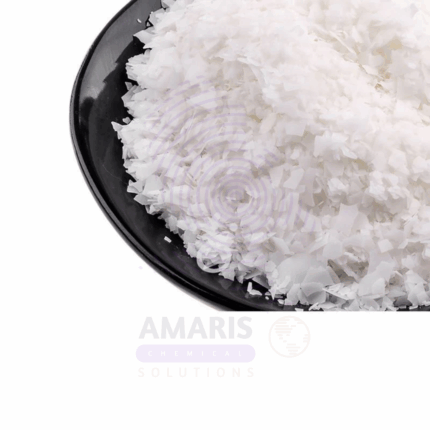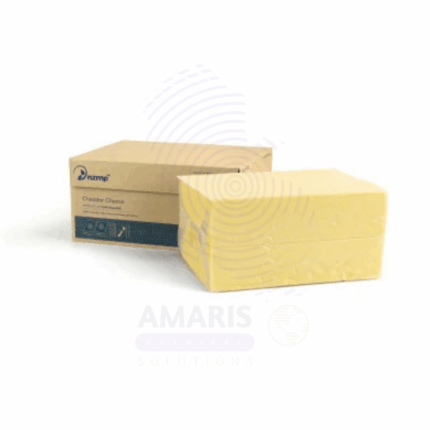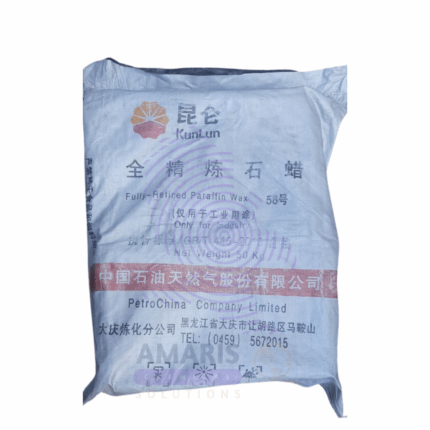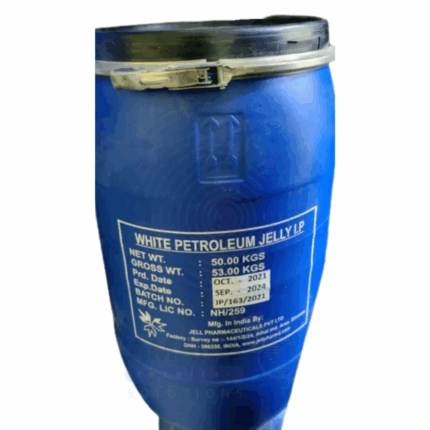
Amla Oil
$ 34.79 Original price was: $ 34.79.$ 34.67Current price is: $ 34.67.
Amla Oil, also known as Indian Gooseberry Oil, is a natural oil derived from the fruit of the Phyllanthus emblica tree, either through infusion of dried amla fruits in a carrier oil (like coconut or sesame) or via cold pressing. Rich in vitamin C, tannins, flavonoids, and essential fatty acids, amla oil is renowned for its rejuvenating and nourishing properties. It is widely used in hair care formulations to promote hair growth, strengthen follicles, and reduce hair fall and premature greying. Amla oil is also applied topically to skin for its antioxidant, anti-inflammatory, and moisturizing benefits. With a slightly earthy aroma and light to medium viscosity, it blends easily with other cosmetic ingredients and essential oils.
It is a staple in Ayurvedic formulations and finds use in both personal care and traditional wellness products. Its versatility also extends to massage blends and herbal preparations in the cosmetic and nutraceutical sectors.
Amla Oil
Primary Uses
- Cosmetic and Personal Care
- Used in hair oils, shampoos, conditioners, and hair masks for scalp nourishment and hair strengthening.
- Incorporated into skincare products such as face oils, serums, and moisturizers for antioxidant protection and skin tone improvement.
- Commonly applied in massage oils for its soothing, rejuvenating properties.
- Blended with essential oils in aromatherapy preparations for holistic wellness and stress relief.
- Pharmaceutical and Nutraceutical Applications
- Used in Ayurvedic and herbal remedies aimed at improving hair health and immune support.
- Included in capsule and tonic formulations for its antioxidant and revitalizing effects.
Secondary Uses
- Industrial and Research Applications
- Used in formulation research for plant-based cosmetic actives and stability testing.
- Applied in the preparation of herbal cosmetic prototypes and pilot production runs.
| PACK SIZE |
5kg |
|---|
1. Basic Identification Attributes
- Botanical Source: Phyllanthus emblica (Indian Gooseberry)
- Common/Trade Name: Amla Oil
- INCI Name: Emblica Officinalis Fruit Oil
- CAS Number: 90028-28-7
- Physical State: Liquid oil
- Color: Light to dark greenish-brown
- Odor: Mild, earthy, and herbal aroma
2. Physical & Chemical Properties
- Solubility: Insoluble in water; soluble in lipids and oils
- Viscosity: Light to medium, depending on carrier oil used
- Shelf Life: 18–24 months under proper storage conditions
- pH Stability: Stable in neutral to slightly acidic pH
3. Safety & Hazard Attributes
- GHS Classification: Not classified as hazardous
- Toxicity: Non-toxic when used topically as directed
- Allergen Information: Generally free from major allergens, but individual carrier oils may vary
- Exposure Limits: No occupational exposure limits established
4. Storage & Handling Attributes
- Storage Conditions: Store in tightly sealed containers, in a cool, dry, and dark place
- Container Type: Amber glass or food-grade plastic to prevent oxidation
- Handling Precautions: Avoid contamination; use clean utensils during dispensing
5. Regulatory & Compliance Attributes
- Complies with cosmetic safety standards in multiple regulatory regions
- Suitable for use in GMP-certified cosmetic and personal care formulations
- Can be used in Ayurvedic and herbal wellness formulations
6. Environmental & Health Impact
- Biodegradability: Fully biodegradable
- Ecotoxicity: Low, environmentally safe under normal use
- Bioaccumulation: Not expected
Safety Handling Precautions
- Avoid contact with eyes and mucous membranes
- Perform a patch test before widespread topical use
- Wash hands thoroughly after handling
First Aid Measures
- Inhalation: Not typically hazardous; move to fresh air if irritation occurs
- Skin Contact: Safe for skin; discontinue use if irritation develops
- Eye Contact: Rinse immediately with water if contact occurs
- Ingestion: Not intended for consumption unless labeled as nutraceutical; seek medical advice if ingested unintentionally
Firefighting Measures
- Fire Hazards: Oil-based product; may be flammable under high heat
- Extinguishing Media: Foam, dry chemical, or CO₂
- Special Precautions: Avoid inhalation of fumes from combustion


 Preservatives(food)
Preservatives(food) Flavor Enhancers
Flavor Enhancers Acidulants
Acidulants Sweeteners
Sweeteners Antioxidants
Antioxidants Colorants(food)
Colorants(food) Nutraceutical Ingredients (food)
Nutraceutical Ingredients (food) Nutrient Supplements
Nutrient Supplements Emulsifiers
Emulsifiers
 Collectors
Collectors Dust Suppressants
Dust Suppressants Explosives and Blasting Agents
Explosives and Blasting Agents Flocculants and Coagulants
Flocculants and Coagulants Frothers
Frothers Leaching Agents
Leaching Agents pH Modifiers
pH Modifiers Precious Metal Extraction Agents
Precious Metal Extraction Agents
 Antioxidants(plastic)
Antioxidants(plastic) Colorants (Pigments, Dyes)
Colorants (Pigments, Dyes) Fillers and Reinforcements
Fillers and Reinforcements Flame Retardants
Flame Retardants Monomers
Monomers Plasticizers
Plasticizers Polymerization Initiators
Polymerization Initiators Stabilizers (UV, Heat)
Stabilizers (UV, Heat)
 Antifoaming Agents
Antifoaming Agents Chelating Agents
Chelating Agents Coagulants and Flocculants
Coagulants and Flocculants Corrosion Inhibitors
Corrosion Inhibitors Disinfectants and Biocides
Disinfectants and Biocides Oxidizing Agents
Oxidizing Agents pH Adjusters
pH Adjusters Scale Inhibitors( water)
Scale Inhibitors( water)
 Antioxidants(cosmetic)
Antioxidants(cosmetic) Emollients
Emollients Fragrances and Essential Oils
Fragrances and Essential Oils Humectants
Humectants Preservatives
Preservatives Surfactants(cosmetic)
Surfactants(cosmetic) Thickeners
Thickeners UV Filters
UV Filters
 Fertilizers
Fertilizers Soil Conditioners
Soil Conditioners Plant Growth Regulators
Plant Growth Regulators Animal Feed Additives
Animal Feed Additives Biostimulants
Biostimulants Pesticides (Herbicides, Insecticides, Fungicides)
Pesticides (Herbicides, Insecticides, Fungicides)
 Active Pharmaceutical Ingredients (APIs)
Active Pharmaceutical Ingredients (APIs) Excipients
Excipients Solvents(pharmaceutical)
Solvents(pharmaceutical) Antibiotics
Antibiotics Antiseptics and Disinfectants
Antiseptics and Disinfectants Vaccine Adjuvants
Vaccine Adjuvants Nutraceutical Ingredients (pharmaceutical)
Nutraceutical Ingredients (pharmaceutical) Analgesics & Antipyretics
Analgesics & Antipyretics
 Analytical Reagents
Analytical Reagents Solvents(lab)
Solvents(lab) Chromatography Chemicals
Chromatography Chemicals Spectroscopy Reagents
Spectroscopy Reagents microbiology-and-cell-culture-reagents
microbiology-and-cell-culture-reagents Molecular Biology Reagents
Molecular Biology Reagents Biochemical Reagents
Biochemical Reagents Inorganic and Organic Standards
Inorganic and Organic Standards Laboratory Safety Chemicals
Laboratory Safety Chemicals Specialty Laboratory Chemicals(Special Laboratory Equipment)
Specialty Laboratory Chemicals(Special Laboratory Equipment)
 Demulsifiers
Demulsifiers Hydraulic Fracturing Fluids
Hydraulic Fracturing Fluids Scale Inhibitors(oil)
Scale Inhibitors(oil) Surfactants(oil)
Surfactants(oil) Drilling Fluids
Drilling Fluids
 Dyes and Pigments
Dyes and Pigments Bleaching Agents
Bleaching Agents Softening Agents
Softening Agents Finishing Agents
Finishing Agents Antistatic Agents
Antistatic Agents
 Admixtures
Admixtures Waterproofing Agents
Waterproofing Agents Sealants and Adhesives
Sealants and Adhesives Curing Compounds
Curing Compounds Concrete Repair Chemicals
Concrete Repair Chemicals Anti-Corrosion Coatings
Anti-Corrosion Coatings
 Surfactants(cleaning)
Surfactants(cleaning) Builders
Builders Enzymes
Enzymes Solvents (Cleaning)
Solvents (Cleaning) Fragrances
Fragrances
 Electronic Chemicals
Electronic Chemicals Catalysts
Catalysts Lubricants
Lubricants Photographic Chemicals
Photographic Chemicals Refrigerants
Refrigerants Automotive chemicals
Automotive chemicals Pyrotechnic Chemicals
Pyrotechnic Chemicals
 Biodegradable Surfactants
Biodegradable Surfactants Bio-based Solvents
Bio-based Solvents Renewable Polymers
Renewable Polymers Carbon Capture Chemicals
Carbon Capture Chemicals Wastewater Treatment Chemicals
Wastewater Treatment Chemicals
 Pigments
Pigments Solvents(paint)
Solvents(paint) Specialty Coatings
Specialty Coatings Binders/Resins
Binders/Resins Additives
Additives Driers
Driers Anti-Corrosion Agents
Anti-Corrosion Agents Functional Coatings
Functional Coatings Application-Specific Coatings
Application-Specific Coatings
 Fresh Herbs
Fresh Herbs Ground Spices
Ground Spices Whole Spices
Whole Spices Spice Blends
Spice Blends Dried Herbs
Dried Herbs
 Leavening Agents
Leavening Agents Dough Conditioners
Dough Conditioners Flour Treatments
Flour Treatments Fat Replacers
Fat Replacers Decoratives
Decoratives Preservatives(baking)
Preservatives(baking)
 Plasticizers & Softeners
Plasticizers & Softeners Reinforcing Agents
Reinforcing Agents Adhesion Promoters
Adhesion Promoters Vulcanizing Agents
Vulcanizing Agents Antidegradants
Antidegradants Blowing Agents
Blowing Agents Fillers & Extenders
Fillers & Extenders Accelerators & Retarders
Accelerators & Retarders
























